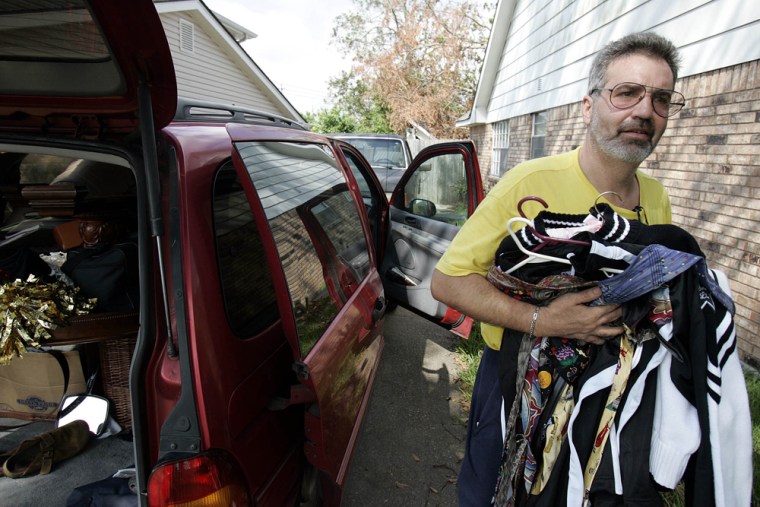NEW ORLEANS — Take your home refrigerator. Fill it up with food: milk, meat, fruits, vegetables, whatever. Then unplug it, turn the heat up to 100 degrees and let it sit for a month.
Ordinary men, women and children — families who fled this hurricane-prone zone four weeks ago — are now slowly coming back to open their front doors to be greeted by the most awful sights, and smells.
Among them the residents of Algiers. Across the Mississippi from New Orleans' French Quarter, this neighborhood was one of the so-called lucky ones. The flood damage was nothing compared to what happened in the Lower 9th ward.
Still, the wind, rain and high waters have left much of Algiers in tatters.
“Desperate? Right now it's past desperate because I don’t have a roof,” said resident Cuttie Allen.
But Algiers is desperate for other reasons, too.
There are pockets of extreme poverty here that would have shocked, perhaps shamed, many Americans even before the one-two punch of Katrina and Rita.
Now those hurricanes have stolen much of what little there was to begin with. Many now have no power, potable water, grocery stores, gas stations or medical facilities.
Nine-year-old Mia Briscoe wants to go to school, but school is closed. “They’ve got holes in the roof,” she said.
Not more 'than we can bear'
“God will not put more on us than we can bear!” shouted Pastor Moses Powell from his pulpit Sunday. “He’s not gonna put more on us than we can deal with.”
But after his weekly sermon, Powell and the handful that remain as his congregation jumped into a van for the trip to the local shelter. The church-run facility was the only place for them to get a hot meal.
It’s run by another pastor, James Brown. Brown doesn’t mind putting in the long hours shunting water and food, but he was critical of the lack of government help.
It’s “nowhere," he said. "Not for us anyway.”
Many Algiers residents — some who’ve returned, others who stayed throughout — echo Brown’s resentment.
“I’m at the end of my rope,” said Charlene Alleman.
Moments later in the food line she was overheard taking to a neighbor. “I’m so depressed,” she confided. “Still the Red Cross hasn’t helped us, or FEMA.”
“Me neither,” her friend responded.
Still, optimism and hope
Still, the two pastors refuse to lose their sense of optimism.
Brown sees the disaster as a means of ending the poverty and anguish his community has suffered through the years. “The world has seen what’s gone on here. The poverty. The haves and have-nots. I think it has gone too far. They have to be compelled, they have to do something. You can’t continue business as usual.”
Pastor Powell agrees.
“It’s gonna be a better city. It’s gonna be a better place to stay … a safer place to stay.”
